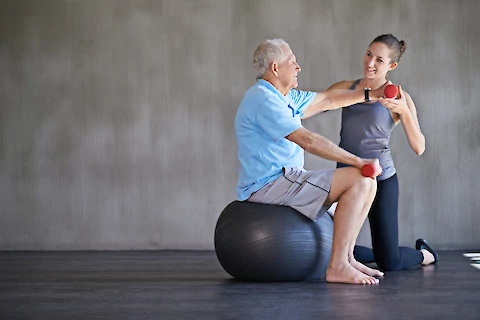
Understanding bone health is crucial when caring for seniors. As bones weaken with age, the risk of fractures and other injuries can significantly increase, affecting quality of life. However, misconceptions about bone health are not uncommon.
These myths, though often held with the best of intentions, could inadvertently make caregiving more complex and even compromise the health of our seniors. Senior Helpers will debunk some of these myths, clarifying what truly contributes to maintaining and improving bone health in our golden years.
Myth 1: Seniors Don't Need Regular Exercise for Bone Health
It's a common misconception that the requirement for physical activity diminishes as we age. Regular exercise is incredibly important for bone health in seniors. Exercise plays a pivotal role in slowing down bone density loss, enhancing balance and coordination, and lowering the risk of falls and fractures. Seniors should opt for low-impact, weight-bearing exercises like walking, yoga, or tai chi, always under proper guidance.
Myth 2: Only Women Need to Worry About Bone Health
The notion that bone health is primarily a concern for women is both false and misleading. While it's true that women are more susceptible to osteoporosis post-menopause, men are also at risk, especially after the age of 70. One in eight men over 50 experiences an osteoporotic fracture. It's clear that bone health is not just a "women's issue," it's a senior's issue.
Myth 3: Calcium Supplements Alone Are Sufficient for Bone Health
While calcium is essential for bone strength, relying solely on supplements to provide this nutrient is not recommended. A balanced diet rich in calcium and Vitamin D, among other nutrients, aids in maintaining vigorous bones. Dairy products, leafy green vegetables, and fish are excellent sources of calcium, while sunlight and foods like eggs provide Vitamin D. It's always better to take a holistic approach to nutrition.
Myth 4: Bone Density Tests Are Not Necessary
Some may believe that unless a senior has experienced a break or fracture, there's no need for a bone density test. This could not be further from the truth. Regular screening for osteoporosis, particularly for seniors aged 65 and over, is vital for early detection and management. These tests can help forewarn about susceptibility to fractures and inform corrective measures.
Myth 5: Seniors Can't Improve Their Bone Health
One of the most damaging misconceptions is that it's impossible to enhance bone health in older age. True, our bones lose density as we age, but seniors can still significantly impact their bone health. From maintaining a balanced diet, engaging in regular exercise, getting sufficient Vitamin D and calcium, and ensuring regular screenings to quitting smoking or excessive alcohol consumption- these steps can greatly improve bone health.
Contact Senior Helpers for Assistance Promoting Bone Health
Deciphering fact from fiction regarding bone health is essential for seniors' well-being and their caregivers. Recognizing and debunking these myths is a step toward ensuring effective caregiving and promoting senior health. In Canada, caregiving resources like Senior Helpers are available to provide a helping hand.
Offering a range of professional care options, we assist seniors in navigating their golden years with dignity and maintaining their independence for as long as possible. Contact us to learn more about our senior care services!